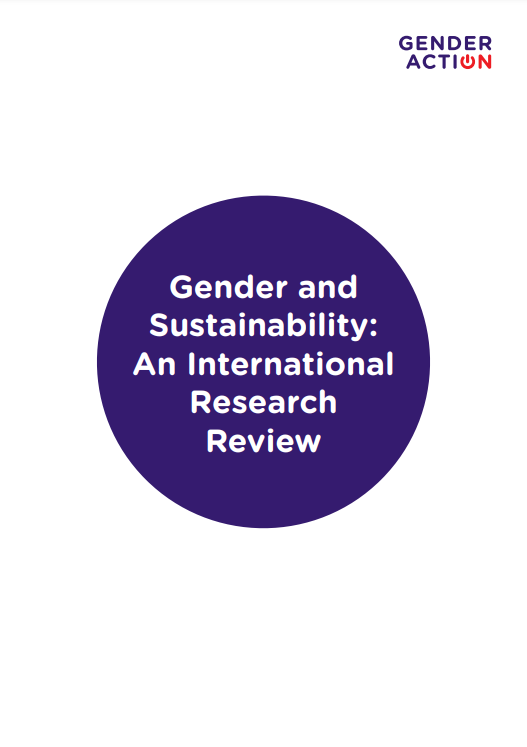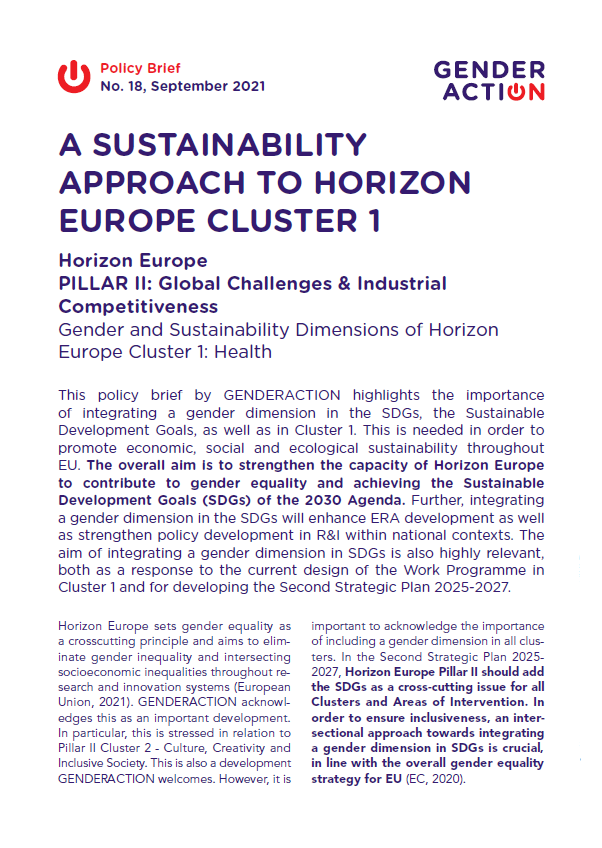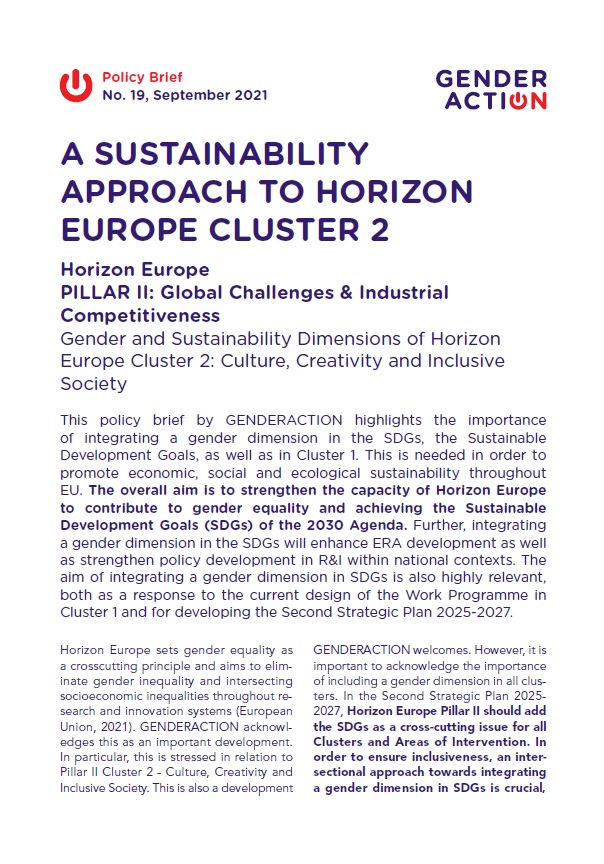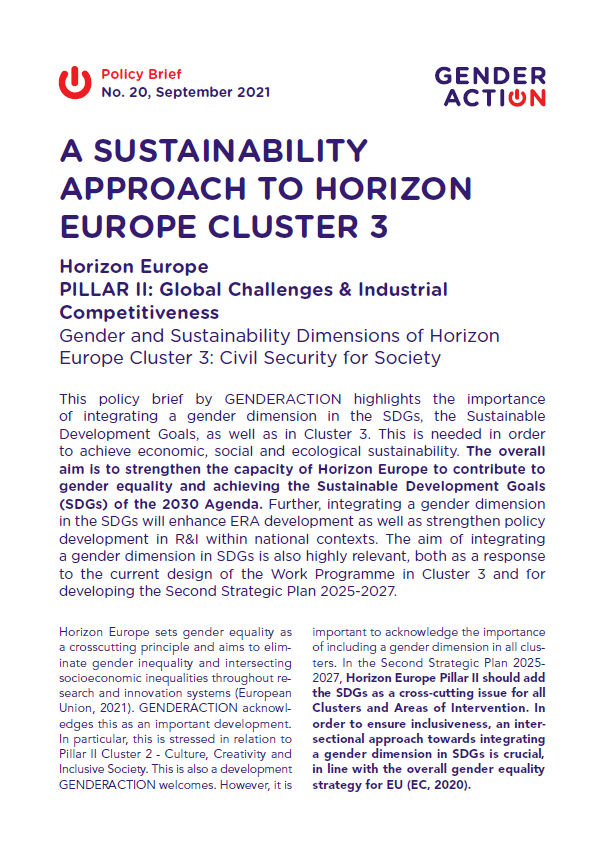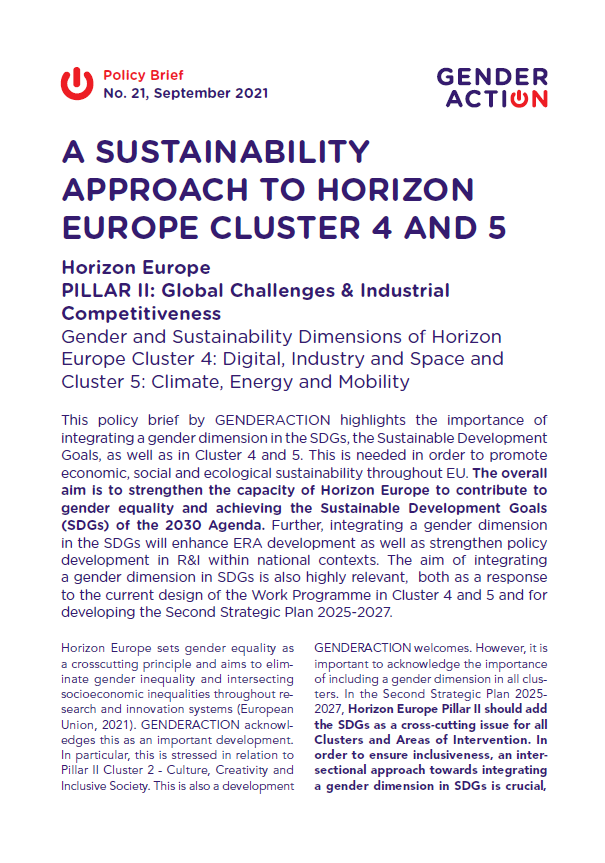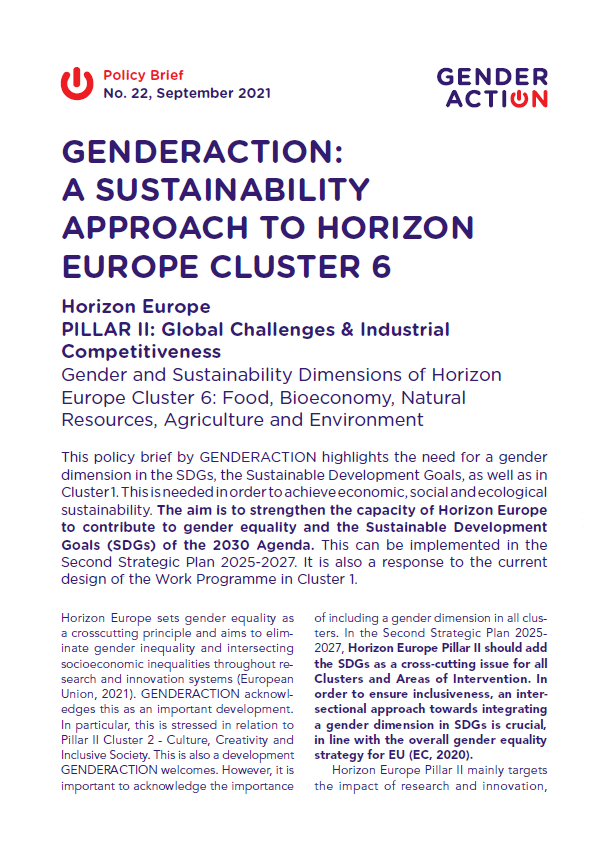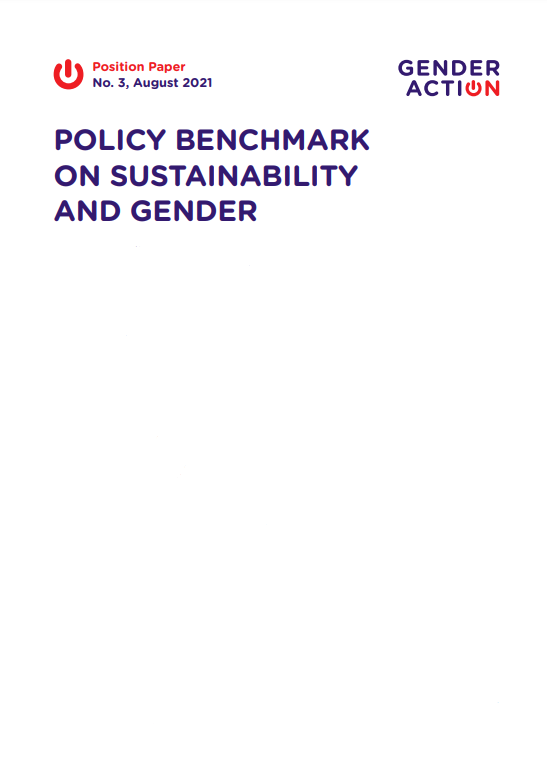Global Sustainable Development Goals
Since it was adopted by the United Nations General Assembly in 2015, the 2030 Agenda and its Sustainable Development Goals (SDGs) have become an important starting point for many organisations in society.
The higher education sector is no exception, both at local level in the first cycle education run by departments at higher education institutions, and at national and EU level among agencies financed by research funding.
The role of research is not solely to identify problems and provide solutions. To at least as high an extent, its role is also to critically analyse the SDGs and who they benefit. There are knowledge gaps that stand in the way of progress towards the SDGs, and there is a need for epistemological perspectives, including the gender perspective, that can strengthen the capacity of research to tackle complex societal challenges.
In cooperation with other actors in Sweden, the Nordics and the EU, the secretariat contribute with research-driven analyses for developing the field of knowledge on sustainability and gender.
Nordic sustainability, lifestyles, and consumption from a gender perspective
How can we enable sustainable living in the Nordic region? How can we better understand how differences in lifestyle arise? This is the focus for the project Sustainability, lifestyles, and consumption from a gender perspective. The project is part of the Sustainable lifestyles in the Nordic region programme. The project is implemented by Nordic Information on Gender, NIKK, placed at the Swedish Secretariat for Gender Research. Commissioned by: Nordic Council of Ministers.
The project aims to examine differences in women’s and men’s lifestyles and consumption in the Nordic countries. By analysing sustainability and lifestyle from a gender perspective, the project contributes to improving understanding and opportunities for sustainable consumption. The project is based on the themes included in the cross-sectoral programme’s various sub-projects and contributes to meeting goal 4 in the Nordic Council of Ministers’ action plan for “Our Vision 2030”.
The project can be linked to several of the goals in Agenda 2030: In particular to the sustainable development goal (SDG) 12 on consumption and production and target 12.8 to increase the public’s knowledge of sustainable lifestyles. The project also links to SDG 3 on health and well-being, SDG 4 on good education, SDG 5 on gender equality, and SDG 8 on decent working conditions and sustainable growth.
The project will produce a Nordic knowledge overview of sustainability, lifestyle and consumption from a gender perspective. The study will:
- Through current knowledge, make gender stereotypes visible and challenged in relation to consumption and lifestyle, and contribute to a better understanding of how differences arise, are strengthened and reproduced.
- Include critical and intersectional perspectives to make visible and problematize, for example how class and age affect both consumption habits and norms around consumption.
- Study and analyse sustainability and lifestyle concepts from a broad intersectional gender perspective, in relation to themes raised in the cross-sectoral program on sustainable lifestyles. These can be, for example, communication about sustainability, education for sustainability, sustainable cultural experiences and sustainable food experiences.
Results will be disseminated within the cross-sectoral programme.
Read more on external website
Gender and sustainable development in EU research policy
With a gender perspective in focus on the UN Sustainable Development Goals (the 2030 Agenda), the Swedish Secretariat for Gender Research had the task to produce a research review, a report on policy development in research and innovation, and a series of five policy briefs.
The initiative is part of GENDERACTION, where the secretariat is one of the partners. It’s an EU-funded project, analysing the progress of member states towards implementation of gender equality within research and innovation. The project is committed to promoting gender dimension in research and innovation within the Horizon Europe framework programme.
The research review on gender and sustainability is based on a systematic, international research review of peer-reviewed research articles published between 2015 and 2020. It presents research findings relating to gender with the aim of identifying conditions, challenges and solutions within the framework of the 2030 Agenda.
The report on policy development (Policy Benchmark) examines how the EU's key policy document for research and innovation addresses gender and sustainability. With some practical examples as a starting point, the report provides recommendations for how gender and sustainability can be related to each other, so that these perspectives can mutually reinforce each other - rather than compete.
How can the EU Framework Programme for Research and Innovation strengthen the capacity to contribute to economically, socially and ecologically sustainable development? The series of policy briefs, based on recent research on gender and sustainability, gives some recommendations. They focus on the six clusters of global challenges in the Horizon Europe framework programme:
- Health (policy brief 1)
- Culture, creativity and inclusive societies (policy brief 2)
- Civil security for society (policy brief 3)
- Digital, industry and space (policy brief 4)
- Climate, energy and mobility (policy brief 4)
- Food, bioeconomy, natural resources, agriculture and environment (policy brief 5)
The material was published in October 2021 and is aimed at stakeholders within the European Research Area (ERA) and research funding and research performing organisations in the EU member states.

